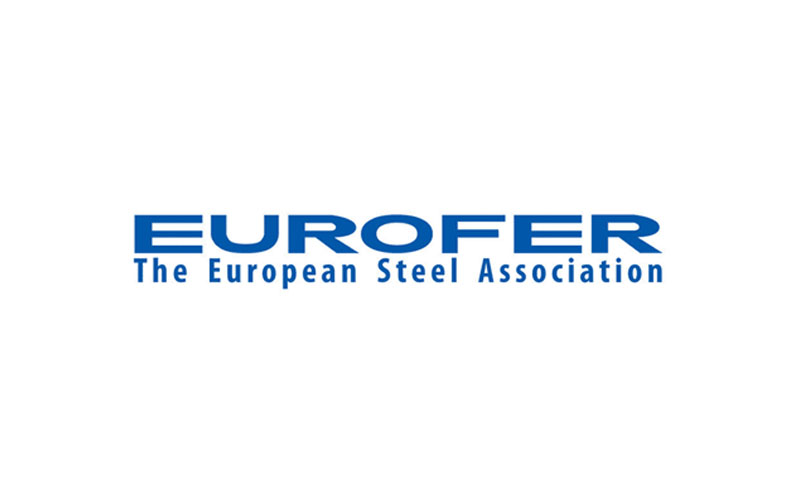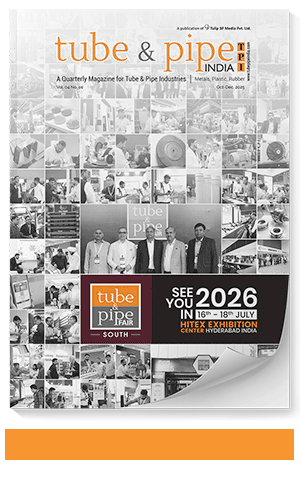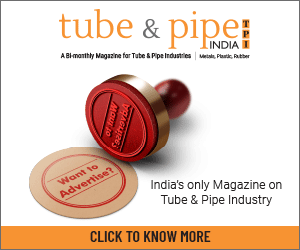In order to simplify and make Carbon Border Adjustment Mechanism (CBAM) effective, EUROFER has sought introduction of a structural legislative solution to preserve European exports and reduce the high risk of resource shuffling, as well as extend the mechanism’s scope to steel-intensive downstream products.
Feb 19, 2025

Following the high-level conference “A Carbon Border Adjustment Mechanism for Climate – Addressing carbon leakage to strengthen global climate action”, organised in Paris by the European Commission and the French Ministries of Finance, Economics and Climate Transition, the European Steel Association (EUROFER) has emphasized that simplification must go hand in hand with ensuring the instrument’s effectiveness.
A statement issued by EUROFER stressed on addressing key issues such as resource shuffling, exports and the inclusions of products further down the value chain.
It said during the conference, the Commission announced that legislative proposals on crucial aspects of the Carbon Border Adjustment Mechanism (CBAM), including exports provisions and coverage of downstream sectors, will only be presented at the beginning of next year.
A top priority for securing steel decarbonisation investments in Europe, which was tackling resource shuffling, was currently not even listed in the Commission’s planning of upcoming legislative proposals.
This situation contradicted the clear political guidance and sense of urgency expressed by both French Ministries during the conference, and supported by other member states.
EUROFER said it was concerned about the differing timelines allocated to the simplification and the effectiveness of CBAM. While the Commission was fast-tracking simplification through the Omnibus Package, the European steel industry remained deeply worried about the lack of urgency in ensuring CBAM’s effectiveness.
Noting that this year’s review of CBAM was critical to achieving both objectives, the Association sought major improvements, including introduction of a structural legislative solution to the very high risk of resource shuffling; introduction of a structural solution to preserve European exports, avoiding carbon leakage on global markets; and extending the CBAM’s scope to steel-intensive downstream products.
Additionally, other design elements, such as stringent default values and the free allocation adjustment, must uphold the mechanism’s environmental integrity, it added.
EUROFER said if these adjustments were not implemented this year, the combination of CBAM and the scheduled phase-out of free allocation would fail to provide adequate protection against carbon leakage. This could further incentivise the relocation of production to third countries, negatively impacting both steel and downstream sectors.
Also Read: Algeria, Nigeria, Niger Expedite 4000 Km Trans-Saharan Gas Pipeline Project
While pursuing the effectiveness and environmental integrity of the mechanism, the administrative burden on operators should be minimised through simpler and streamlined procedures.
The Commission has already planned certain simplifications as part of the Omnibus revision. In particular, a revision of the current de minimis threshold of EUR 150 could be an appropriate adjustment to avoid unnecessary reporting for small consignments. Furthermore, CBAM reporting obligations should not apply to European products exported outside the EU, processed abroad, and subsequently reimported into the EU as CBAM goods. Effective monitoring should prevent such provisions from favouring circumvention practices.
In line with these recommendations, a more effective yet simpler CBAM was both possible and urgently needed. Launching it without the necessary improvements would further erode the competitiveness of the European steel industry. This was indispensable given that the EU carbon price had reached approximately EUR 80 per tonne, while over 25 million tonnes of steel, equivalent to around 20 percent of EU production, were imported annually from third countries without any carbon cost.










